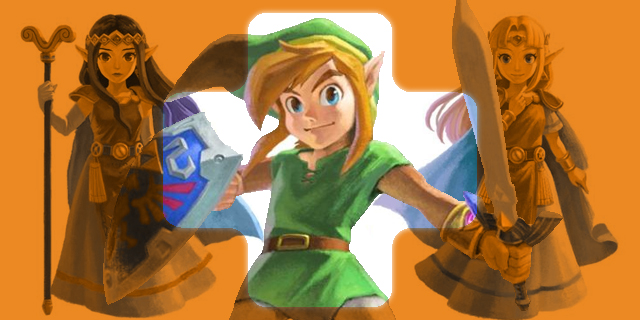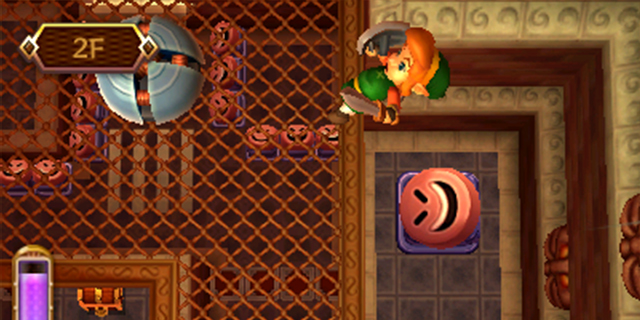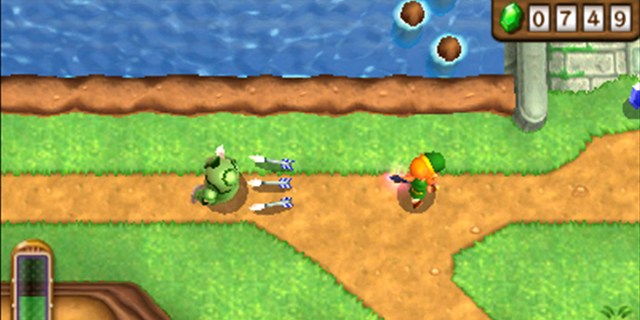
When it comes to reminding us of our gaming pasts, in particular the games we grew up with, no one does it better (or more frequently) than Nintendo. It is often considered the Disney of the gaming industry, and for good reason. While this trend of relying on nostalgia isn’t exclusively a Nintendo idea, one of its most recent releases, The Legend of Zelda: A Link Between Worlds, is exemplary of its desire to remain in touch with its past. It signifies both its struggles as a company over the past decade and how it can easily overcome those struggles: by continuing to look forward.
When the sequel to one of the most beloved Zelda games was announced early in 2013, there was excitement, but also plenty of skepticism. Many criticized Nintendo for something that, to them, seemed like a lazy rehash and just the sort of thing that has made the company’s releases less interesting in recent years. While I didn’t entirely share this sentiment, I did have some concerns about the game (and Nintendo as a whole), despite still being one of the many who made their excitement for the announcement known right from the start.
Relying on nostalgia has become a somewhat-successful, often-lazy way to grab people’s attention. It’s essentially a tool that has some uses, but relying on it too heavily will only hurt, not help, the game in the long run. This is where A Link Between Worlds truly succeeds. On the surface, it follows the Link to the Past formula closely, but once you dig deeper you’ll discover it’s also one of the most innovative Zelda games to come along in quite some time.

Managing to maintain the nostalgia value that led people to playing your game while also creating systems that add to the experience as a whole is a difficult balance, but Nintendo pulled it off remarkably. I attempted to avoid learning as much about the game as possible, making every new detail that much more interesting as a result. I bought into it purely due to nostalgia, but came away from it feeling more positive about the series’ future.
A game like Fez operates on similar nostalgic value, even if it’s not as specific as A Link Between Worlds. It presents itself as a relatively-simple puzzle game with one central mechanic, being able to rotate the world, but it’s presented as a callback to games from our past. This is how Fez ultimately deceived me, as it becomes a much deeper experience the more I began to dig into it, completely destroying all expectations I had for it (for the best). Sure, that core mechanic was part of the reason I was intrigued by Fez before even having played it, but I’m also easily roped in by nostalgia.
To me, that’s what separates these games from titles that do nothing but rely on cheap tricks from a bygone era simply because they are appeasing to those who are easily swayed by the siren’s call of nostalgia. A Link Between Worlds might have still been an excellent Zelda game, but everything it does, from allowing you to access the majority of the items early on to making traveling around the world easier, shows a level of experimentation we so rarely see from a company like Nintendo.

Maybe it only succeeded because the experience was so rooted in nostalgia, allowing those hardcore fans to let their guard down just long enough to experience something different. Or maybe Nintendo was afraid to experiment with a game that was completely separate from previous Zelda titles in order to avoid backlash from fans. We may never know, but it was a clever way to grab people’s attention before showing them what truly makes ALBW such a brilliant game.
We will continue to see games that do very little to break away from their nostalgic roots and rely entirely on that, providing nothing unique or interesting. That said, if Link Between Worlds showed me anything, it’s even Nintendo, a company that relies so heavily on its past, has plenty of new tricks up its sleeves. It’s a trend I hope to see more of, both from Nintendo and other companies, big or small, in order to provide games which cater both to our past and our always-present desire for unique experiences.



















